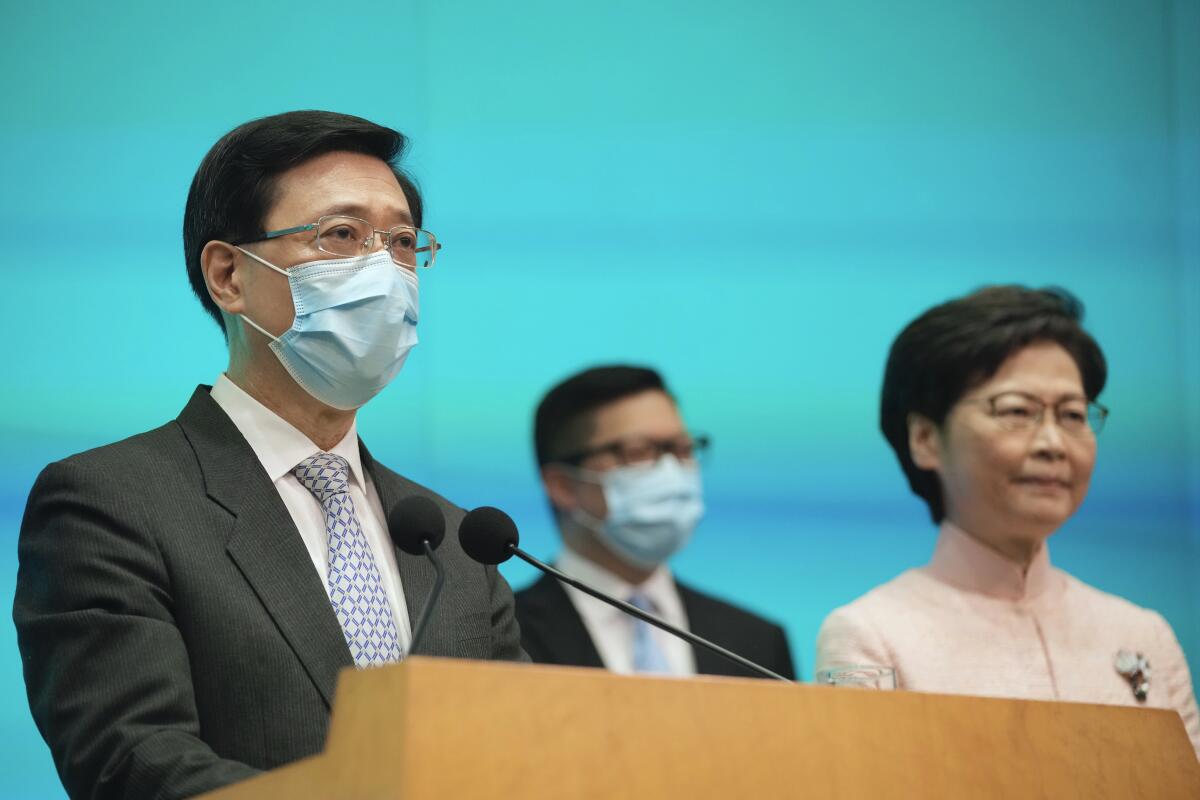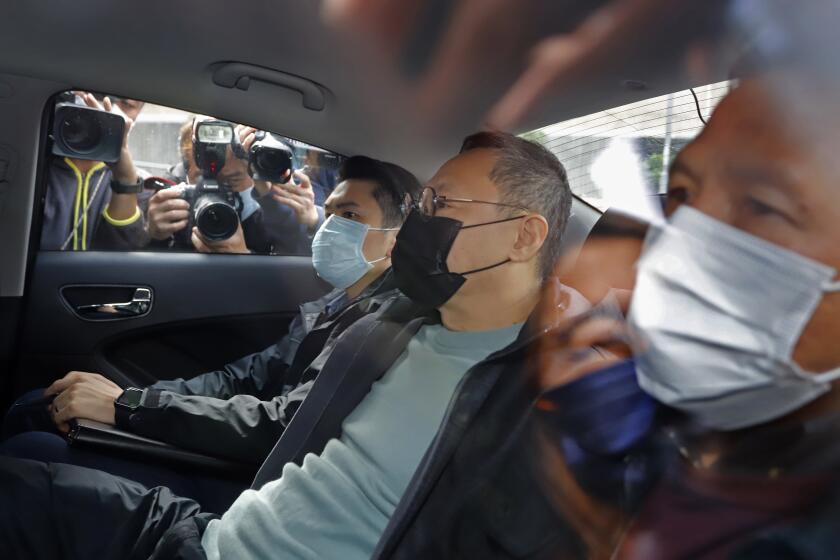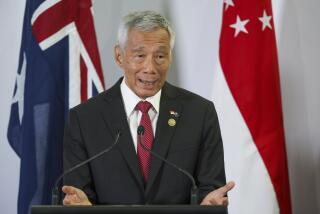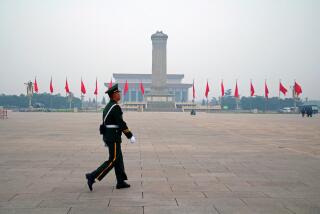Hong Kong’s security chief promoted to No. 2 post amid clampdown on dissent

HONG KONG — China promoted Hong Kong’s top security official Friday to the city’s second-most-powerful post as Beijing continues its clampdown on free speech and political opposition.
Chief Executive Carrie Lam said Secretary for Security John Lee would replace Matthew Cheung as the city’s chief secretary, while police chief Chris Tang would take over Lee’s role. Raymond Siu Chak-yee, Tang’s deputy, will take over as head of the police force.
Hong Kong’s government has long been lauded for its professionalism and efficiency, but its image has been battered in recent years by its response to protests for greater democracy and its enforcement of Beijing’s security policies. The U.S. and other Western democracies have imposed visa bans and other sanctions on Lam, Lee and other members of the administration.
Violent clashes between police and pro-democracy demonstrators in 2019 prompted the central government to adopt a firm line against political concessions, a policy seen through by Lam, Lee, Tang and Siu, who made restoring public order their top priority.
“They have had distinguished performance in the government over the years and possess proven leadership skills,” Lam said of those promoted. “I am confident that they are competent for their new posts and would rise to the challenges in serving the community.”
Cheung, the former No. 2 official, will retire from government service.
The final edition of Apple Daily, Hong Kong’s last remaining pro-democracy newspaper, sold out in hours as readers scooped up all 1 million copies.
The leadership changes come a year after Beijing imposed a sweeping national security law on the former British colony and one day after Hong Kong’s last remaining pro-democracy newspaper, the Apple Daily, published its final edition.
Police froze $2.3 million of the paper’s assets, searched its offices and arrested five top editors and executives last week, accusing them of foreign collusion to endanger national security. Its founder, Jimmy Lai, is facing charges under the national security law for foreign collusion and is currently serving a prison sentence for his involvement in the 2019 pro-democracy protest movement.
On Thursday, President Biden said it was a “sad day for media freedom in Hong Kong and around the world,” and accused Beijing of having “insisted on wielding its power to suppress independent media and silence dissenting views.”
“People in Hong Kong have the right to freedom of the press. Instead, Beijing is denying basic liberties and assaulting Hong Kong’s autonomy and democratic institutions and processes, inconsistent with its international obligations,” Biden said in a statement on the White House website.
Beijing’s dismantling of Hong Kong’s autonomy is all but complete. Those who dared challenge its authority now face years in prison.
Apple Daily continues to be published online in Taiwan, the self-governing island democracy that China claims as its own territory.
Beijing promised that Hong Kong would maintain its civil liberties for 50 years after the former British colony was handed over to Chinese rule in 1997, but has essentially abandoned that commitment in order to impose total political control and end what it sees as undue foreign influence on the semi-autonomous city’s institutions.
Despite the Hong Kong government’s overwhelming emphasis on security, Lam told reporters that the role of the chief secretary in helping oversee the city’s daily administration, including dealing with the COVID-19 pandemic, had not changed.
Yet she appeared to acknowledge Beijing’s increasingly assertive role in managing the city’s affairs and the central government’s demand for absolute loyalty from Hong Kong officials and members of the Legislative Council.
When I was a young man in the 1970s, I joined hundreds of thousands of desperate Chinese to swim miles across the sea to Hong Kong, our beacon of freedom.
“Now today as chief executive, I am responsible not only to Hong Kong but also to the central government, performing national duties, particularly in safeguarding national security,” Lam told reporters. “So for people with commitment, integrity, leadership and spirit to serve the nation and Hong Kong ... we will put in our best.”
China has dismissed foreign sanctions and criticism as interference in its internal affairs, and Chinese Foreign Ministry spokesman Zhao Lijian on Friday defended the national security law as focused on “cracking down on a small group of anti-China elements in Hong Kong who have seriously endangered national security, and which protects the rights and freedoms enjoyed by the vast majority of Hong Kong residents in accordance with the law, including freedom of the press.”
“Since the enforcement of the Hong Kong national security law, Hong Kong society has returned to stability, the rule of law and justice has been upheld, and the legal rights and freedoms of Hong Kong residents and foreign citizens have been better protected in a safer environment,” Zhao said at a daily briefing.
“Accusing China of suppressing press freedom just because the organization involved in the case is a news outlet and the individuals punished are working in the field of journalism is an attempt to confuse the public out of ulterior motives,” Zhao said.
More to Read
Sign up for Essential California
The most important California stories and recommendations in your inbox every morning.
You may occasionally receive promotional content from the Los Angeles Times.












